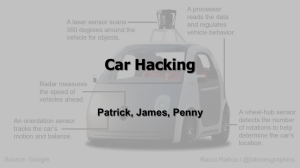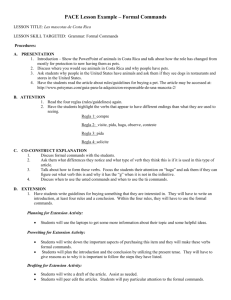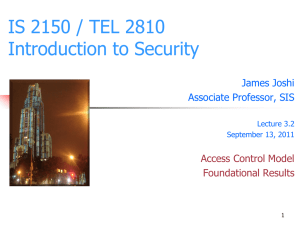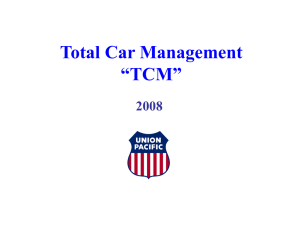Automobile Computer Security
advertisement
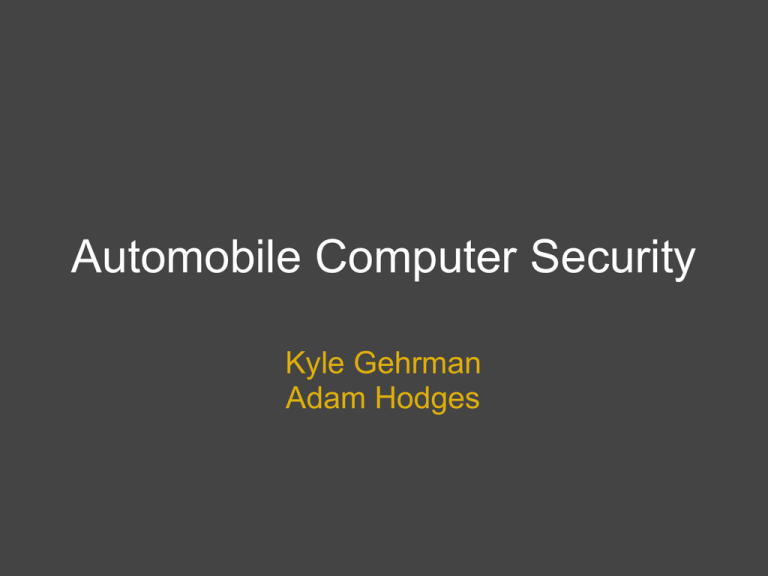
Automobile Computer Security Kyle Gehrman Adam Hodges The Modern Car • Electronic Control Unit (ECU) • Controller Area Network (CAN) o Found in virtually all modern cars since ~2003 Some modern cars have over 80 ECUs in the CAN Accessing the CAN • Early CANs were wired o Assumed closed network • More recent CANs contain wireless components o Massive security implications • Just how safe is a modern CAN? o Experimental study done in 2010 by researchers at Univeristy of Washington and University of California Experimental Security Analysis • Researchers used two identical 2009 model cars • Wrote a packet sniffer/injection tool, introduced into the CAM by simply plugging a device in to the car's federally mandated universal OBD-II diagnostics port • Used "fuzzing" to enumerate the commands that the car responds to • Using the commands they discovered, performed live tests to see how much of the car they could control Results • Researchers could not only fully control the car using their device, they could do it while the car was going 40 MPH • Among the things they could control: o Disable brakes o Engage brakes o Disable wipers and continuously spray fluid o Permanently activate horn o Kill engine o Unlock all doors • Also found that they could write programmatic commands, or "viruses", that would activate under certain conditions o Disable all lights when driving over 40MPH • Even though they had physical access to the CAN, they noted that the same commands could potentially be executed wirelessly The Problem • CAN is an insecure low-level protocol • Every message is an unencrypted plain-text broadcast to every device on the CAN • Possible messages and communication procedures are often documented and made available freely • No component authentication • Any device can send a command to any other devices. o Atttacker could use tire pressure gauge to turn off brakes The Solution • Auto manufacturers need to recognize this security flaw in the CAM if they are using wireless ECU communication • Controller authentication o Only valid controllers can communicate on the CAN • Encrypted communication o Must be high performance, so use symmetric key o Distribute symmetric key using asymmetric encryption during authentication • Firewall o Restrict a components commands to only those essential to its function Conclusion • Auto makers need to understand the seriousness of having networked car components and take security measures accordingly • These security flaws are growing in seriousness as cars automate more and more things o Electric steering and acceleration • With the emergence of bluetooth connected ECUs, this is a serious security issue that cannot be ignored any longer. References Experimental Security Analysis of a Modern Automobile http://ieeexplore.ieee.org/xpls/abs_all.jsp?arnumber=5504804& tag=1 Security in Automotive Bus Systems http://weika.eu/papers/WolfEtAl_SecureBus.pdf Hacking Cars http://dl.acm.org/citation.cfm?id=2018396 (pg 18) Highway Robbery: Car Computer Controls Could Be Vulnerable To Hackers http://www.scientificamerican.com/article.cfm?id=wireless-carhacking
